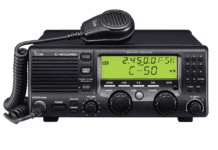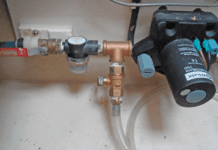If COVID-19 has delayed your fitout, and yard costs are exceeding your original budget, storing your boat on your own property while you complete your work might be a practical option. When you use boatyard facilities for hauling and launching when the boat is trucked elsewhere for storage, there are a number of special factors to consider. The key to saving money and trouble with such an arrangement is to use a boatyard and a hauler who get along with one another.
This means that the yard knows that the hauler will be there on time to let the boat be set immediately on the truck and that the yard will have the boat hauled and washed when the truck arrives. Otherwise, if the truck is late you can rightfully be charged for the delay in the slings or even for poppeting the boat to free the lift. Conversely, the trucker can charge for the wait if the boat is not ready for loading. Worse still, if the trucker’s schedule is tight, he may not wait, giving you the devil’s own time – and expense – setting up a new appointment.
Despite the seeming simplicity of hauling a boat and setting it promptly on a truck bed (or the reverse, lifting it off and launching), yards tend to charge more for their part of the operation than they do for boats stored in the yard. Many yards charge for the hauling and launching separately when the boat is trucked away.
One reason for this is the need for exact timing, but the more common explanation is that the owner of the stored boat is also likely to contract for winterization, painting, and repair as well as be expected to purchase items at the yard store, all producing more income for the yard. Nevertheless, in our experience we still save money by storing at home.
Check the cost for handling spars. In the yard we deal with the charges for unstepping the mast, storing it inside, and restepping it in the spring is a cheaper package than the price for separate unstepping and restepping when the mast is taken away with the boat. This despite the fact that the hauler charges nothing additional for carrying the mast.
Regarding liability, the hauler assumes the risk for the boat from the time it is loaded until it is off· loaded and supported. You are strictly responsible for the boat during storage even if the hauler blocked it and the poppets are his.
Although it is seldom practical to be on hand for hauling, given the inexact schedule boatyards operate with, you should plan to be there for hauling when it involves trucking. For one reason, both yard and hauler may expect to be paid on the spot (attaching a lien on a boat in your backyard is not feasible).
Finally, both the boatyard and the hauler operate on a contractual basis. As with a yard· stored boat, study the terms each sets; when your boat is suspended in a lift over the truck is not time to be trying to read the fine print.





































